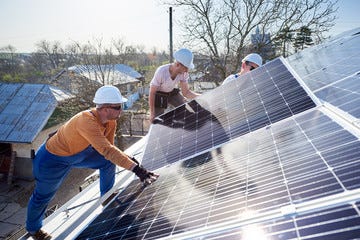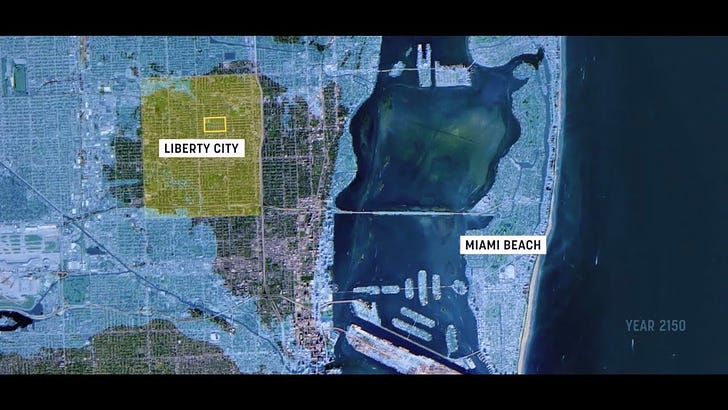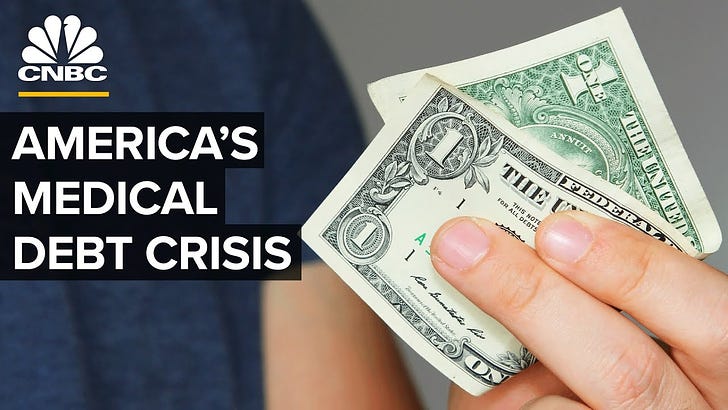What’s the holdup, then? According to statistics from the U.S. Energy Information Administration (EIA), in 2021, “…renewable energy sources accounted for about 12.2% of total U.S. energy consumption and about 20.1% of electricity generation.”
Although these numbers for our use of renewable energy sources are expected to increase slightly in the next few years, and in the coming decades we are committed to global agreements to reduce our carbon emissions, we’re still way behind most other industrialized countries in our use of renewable resources, like wind, solar and hydro generated power as our sources of energy.
(See links at the end of the post to EIA charts that show overall U.S. energy consumption by source and sector and a chart that shows U.S. renewable energy consumption, also broken down by source and sector. If you can figure out where all those lines go, I’ll want to talk with you.) 1
Substack’s own Bill McKibben, prolific author and guru of all things climate change, wrote in a recent post that the cost of renewable energy is plummeting across the globe. Using wind energy as an example, he noted that China installed a whopping “80% of all new off shore wind capacity” in 2021. Europe came in a distant second, and it appears the U.S. is lumped in with the final category, “the rest of the world” which didn’t make much of a showing by comparison.
Yet a few members of Congress, by their fossil-fuel greed and inept negotiating strategies have stalled any real action our government could take on climate change.
This CNN article from less than two weeks ago examines how negotiations broke down on the latest climate bill:
As negotiations came to a head mid-week, Senate Majority Leader Chuck Schumer made a number of deep concessions to try to woo Manchin, offering to significantly reshape the bill to fit Manchin's wishlist, according to a Democratic source briefed on the negotiations -- channeling the revenue to tax reform; striking electric vehicle tax credits; adding additional measures to encourage more oil and gas drilling.
Schumer made "concession after concession to at least get the best we could get," Sen. Tina Smith of Minnesota told CNN. "To have Sen. Manchin walk away from that good-faith negotiation was stunning to me."
Wait. “Stunning”? I’m shocked, shocked I tell you, that Senator Joe Manchin, coal baron bought by the fossil fuel industry, would walk away from the Democrats’ good faith efforts to, well, give him everything he wants.
Here’s a quick glance back at how the “negotiations” unraveled with Senator Manchin on what would have been president Biden’s signature piece of legislation, the Build Back Better Act.
Sen. Joe Manchin, D-W.Va., certainly drives a hard bargain. After months of negotiations on the Build Back Better Act, he’s rejected every iteration his fellow Democrats have put forward. Now Manchin is reportedly rejecting the plan he himself presented to President Joe Biden last month. MSNBC, January 11, 2022
Do you see a pattern here?
It is important to digress about the dead-in-the-water Build Back Better Plan and Climate Bill because this inaction is in direct opposition to our immediate need to confront climate change—the world is currently besieged with droughts, wildfires, deadly heat waves and regular and massive weather events that over the last dozen years: “…have cost the US more than $100 billion per year on average during that time -- almost double what they averaged in the decade before.” 2 And some members of Congress are still claiming that the cost to combat climate change is too expensive?
It’s also important to consider the full picture, because the potential for green energy jobs is huge and can transform both our entire job market and individual communities that were built around the fossil fuel industry. This Brookings Institution report from 2021 is a great resource for understanding the transition from fossil fuels to clean energy sources and what it means for our jobs picture and our communities.
The shred of good news, here, is the U.S. is already experiencing decent job growth in clean energy technology:
Other energy industries, such as the electric vehicle and renewable energy sectors, also experienced significant job growth in the last few years:
Electric vehicles jobs increased by 26.2%, adding 21,961 new jobs.
Hybrid electric vehicle jobs increased by 19.7%, adding 23,5777 new jobs.
Solar energy jobs increased by 5.4%, adding 17,212 new jobs.
Wind energy jobs increased by 2.9%, adding 3,347 new jobs.
Transmission, distribution and storage jobs increased by 1.9%, adding 22,779 new jobs.
From the 2022 U.S. Energy and Employment Report (USEER) Statistics from 2021
Let me ask again—what’s the holdup on our transition from fossil fuels to clean energy sources? Why isn’t the United States a leader in the race to save our planet? Do we lack the intelligence, the political will, the creativity?
I’d love to hear your thoughts in the Comment Section below.
And speaking of communities, you can also become a participating member of the Crime and Punishment community by signing up right now for a free or paid subscription. Thanks in advance for your support!

















Renewable Energy Is Now